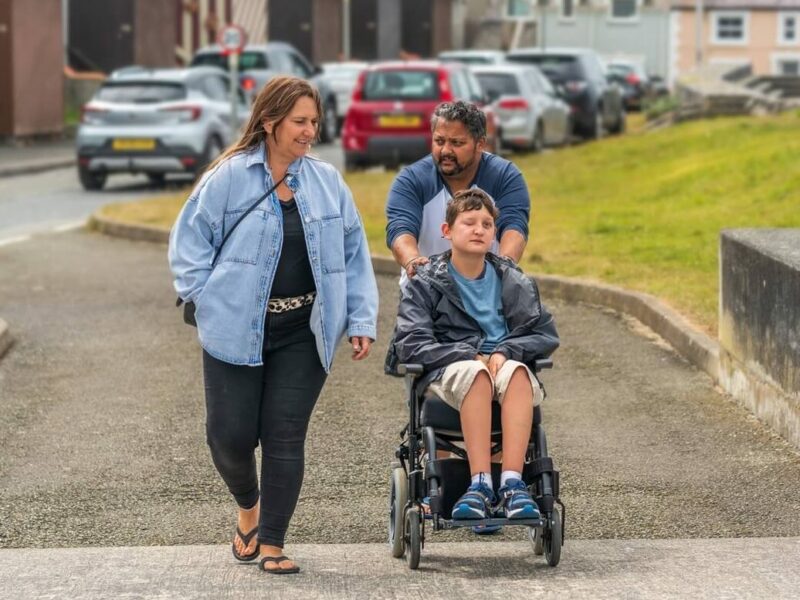Suspension and permanent exclusion
Downloads
What is a suspension or permanent exclusion?
In England, a child or young person can be:
- suspended (also called fixed term exclusion): where they are temporarily removed from a school, for one or more fixed periods up to a maximum of 45 school days in a single academic year
- permanently excluded – where the pupil is no longer allowed to attend school and is removed from school roll, unless the pupil is reinstated.
Only the headteacher of a school can suspend or permanently exclude a pupil on disciplinary grounds. The decision to exclude a pupil permanently should only be taken after careful consideration of the circumstances and only:
- in response to a serious breach or persistent breaches of the school’s behaviour policy and
- where allowing the pupil to remain in school would seriously harm the education or welfare of the pupil or others, such as staff or pupils in the school.
Statutory guidance
Schools must follow the statutory guidance published by the Department for Education: Suspension and Permanent Exclusion from maintained schools, academies and pupil referral units in England, including pupil movement (2023).
The guidance sets out what schools and local authorities must do to comply with the law, and it applies to local-authority-maintained schools, academies, and child or young person referral units.
A guide for parents on school behaviour and exclusion (May 2023) – GOV.UK is also available.
What schools must tell you
When a pupil is suspended or permanently excluded, the headteacher must notify parents/carers (or the pupil if aged 18 years or older) without delay and provide written information including:
- the reason(s) for the suspension or permanent exclusion
- the length of a suspension or confirmation that the exclusion is permanent
- parents’/carers’ (or an excluded pupil if they are 18 years or older right to make representations about the suspension or permanent exclusion to the governing board and how the pupil may be involved in this
- parents’/carers’ (or an excluded pupil if they are 18 years or older) right to request a remote hearing and how to do this
- how any representations should be made
- Parent/carer’s (or an excluded pupil if they are 18 years or older) right to attend a meeting, be represented (at their own expense) and bring a friend.
Written notification of the information above can be provided by delivering it directly to the parents/carers, leaving it at their usual or last known home address, or posting it to that address. Notices can be given electronically if the school has written agreement for this kind of notice to be sent in this way.
Off-rolling and unlawful exclusions
All exclusions must be formally recorded. It is unlawful to exclude a pupil for reasons such as:
- having special educational needs or a disability (SEND)
- academic performance or ability
- failure to meet conditions like attending re-integration meetings.
If any of these unlawful exclusions are carried out and lead to the deletion of a pupil’s name from the register, this is known as ‘off-rolling’.
An informal or unofficial exclusion, such as sending a pupil home ‘to cool off’, is unlawful when it does not follow the formal school exclusion process, even if it was agreed with parents/carers.
An example of ‘off-rolling’ is when a school pressures a parent/carer to remove their child by suggesting elective home education or finding another school, as an alternative to permanent exclusion.
Duties under the law

Under the Equality Act 2010, schools must not discriminate against, harass, or victimise pupils because of their:
- sex
- race
- disability
- religion or belief
- sexual orientation
- pregnancy/maternity
- or gender reassignment.
For disabled pupils, schools must make reasonable adjustments to avoid disadvantage. This includes changes to policies and the provision of auxiliary aids and services.
These duties need to be complied with when deciding whether to exclude a pupil. Schools must also ensure that any provision, criterion, or practice does not discriminate against pupils by unfairly increasing their risk of exclusion. For example, if reasonable adjustments have not been made for a pupil with a disability that can manifest itself in breaches of school rules if needs are not met, a decision to exclude may be discriminatory.
The Governing Board must:
- use their best endeavours to ensure appropriate SEND provision
- follow the SEND Code of Practice (2015).
If behaviour is linked to SEND, schools should:
- increase SEN or pastoral support
- seek advice from specialist services (i.e. educational psychology or behaviour support)
- identify and address the underlying causes of the behaviour.
Children & young people with Education, Health and Care Plans (EHCPs)
If the child/young person has an Education, Health and Care (EHC) Plan, schools should contact the local authority SEND service and consider requesting an early annual review prior to making the decision to suspend or permanently exclude.
If parents/carers believe that their child or young person has been excluded as a result of their special educational needs not being met, they may need to consider one or more of the following:
- has the provision set out in Section F of the EHC Plan been arranged
- is the provision in the EHC Plan the right provision, is there an adequate level of support
- whether the EHCP reflects the child/young person’s current needs.
If parents/carers feel that the EHC Plan does not reflect their child’s or young person’s needs, the provision they require, or further information is required, they may wish to ask for updated advice to inform an amendment to the EHC Plan.
Parents/carers also have the right to request a re-assessment and further information about considering whether to request this can be found on the IPSEA website: Template letter 2: asking for a re-assessment of a child or young person’s needs.
Children & young people with Special Educational Needs but without an EHCP

Schools should review current support and involve internal and external practitioners to assess whether changes are needed.
If more specialist help is needed, parents/carers or school can request an EHC needs assessment from their local authority.
It is helpful to discuss the request from school and ask them to provide supporting evidence or to make the request.
If the child/young person has already been suspended or permanently excluded, parents/carers should raise this at both the governing board meeting and the independent review panel (if they request one).

During the first five days of an exclusion
If the child is of compulsory school age, parents/carers must ensure they are not in a public place during school hours unless you have a reasonable justification.
Parents/carers may receive a fixed penalty notice if this is not followed.
What about the child or young person’s education during a suspension?
During the first five days of a suspension, the school should take reasonable steps to set and mark work for the child or young person. For longer suspensions, the governing board or local authority must arrange suitable full-time education to begin from no later than the sixth day of the suspension, if they are of compulsory school age (between the ages of 5 and 16).
Suitable education is defined as efficient education suitable to the child’s age, ability and aptitude and any special educational needs the child may have.
What happens to the child or young person’s education when they have been permanently excluded?
When a child or young person has been permanently excluded, the local authority must arrange alternative education to begin from the sixth school day after the first day the permanent exclusion took place.
This type of education is called alternative provision and includes education provided at pupil referral units, as well as some other types of education settings.
In the case of a child or young person who is attending a setting within a neighbouring local authority it is the ‘Home Authority’ (where the child or young person lives) that has responsibility for securing that provision.
Governing board meetings
The Governing Board plays an important role in reviewing decision to suspend or permanently exclude a pupil. This process depends on the type and length of the exclusion.
The Governing Board must meet if:
- the pupil has been permanently excluded
- the suspension causes the pupil to miss a public exam or national curriculum test
- the pupil has been suspended more than 15 school days in total in a term.
These meetings must take place within 15 school days of the board being notified.
If the pupil has been suspended for between 6 and 15 school days in a term, parents/carers (or the pupil if aged 18+) can request a Governing Board meeting. If requested, the meeting must be held within 50 school days of the board being notified.
For suspensions of five school days or fewer in a term, the Governing Board is not required to meet, even if it is requested. However, they must still consider any written representations submitted by parent/carers. They cannot direct reinstatement in these cases.
The governing board must meet within 15 school days of being notified of the permanent exclusion.
What to expect
- You’ll receive a letter with the date and time of the meeting.
- An evidence pack will be shared at least five school days in advance.
At the meeting, the Governing Board will:
- review the headteacher’s decision
- consider the pupil’s circumstances and the impact on others
- take into account any special educational needs or disabilities
- consider whether reasonable adjustments were made
- listen to representations from the parent/carer, the pupil (if attending), and any invited professionals (e.g. social worker, LA representative).
The governing board will apply the civil standard of proof i.e. ‘on the balance of probabilities’ (it is more likely than not that the pupil did what they are alleged to have done).
After the meeting, the Governing Board will review the case and can either:
- uphold the suspension or exclusion
- direct reinstatement of the pupil (either immediately or on a future date).
Even if the suspension period has already ended, or the parent/carer does not want the pupil to return, the governing board must still consider whether the pupil should be officially reinstated.
If the meeting was about a suspension (fixed-term exclusion)
There is no formal right of appeal after a Governing Board meeting for a suspension. However, parents/carers can:
- raise concerns through the school’s complaints procedure
- if they believe the suspension was discriminatory, they may consider making a claim to the SEND Tribunal or Equality Tribunal (within 6 months of the incident).
If the meeting was about a permanent exclusion
If the Governing Board upholds the permanent exclusion, parents/carers (or the pupil if aged 18+) have the right to request an Independent Review Panel (IRP).
Independent Review Panel (IRP)
If the Governing Board upholds a permanent exclusion, parents/carers (or the pupil if aged 18+) have the right to request an Independent Review Panel (IRP) to review the decision.
This request must be made within 15 school days of receiving the Governing Board’s decision letter.
The IRP provides an independent check to ensure that the exclusion was lawful, reasonable and procedurally fair.
The panel cannot overturn the exclusion but it can:
- uphold the decision
- recommend that the Governing Board reconsider
- quash the decision and direct the Governing Board to reconsider reinstatement.
Parents/carers can request that a Special Educational Needs (SEN) Expert attends the hearing. The SEN Experts role is to advise the panel on how the pupil’s SEN may be relevant to the exclusion decision.
Important: If you want a Special Educational Needs (SEN) expert to attend the IRP, this must be included in your letter when you request the IRP.
This can help to ensure that the pupil’s needs and any reasonable adjustments are properly considered.
It is also important to note that IRP hearings can be held via remote access (e.g. video link) if requested. However:
- remote meetings must not be the default
- face-to-face meetings are encouraged.
Remote access must only be used if the panel and arranging authority are satisfied that the meeting can be held fairly and transparently.
SEND First Tier Tribunal
The SEND Tribunal can hear claims of disability discrimination by a school under the Equality Act 2010.
It has jurisdiction over all exclusions and suspensions of disabled pupils from schools.
Unlike an Independent Review Panel (IRP), the SEND Tribunal can order reinstatement.
Claims must be made within six months of the alleged discrimination.
Where possible, schools should keep records and evidence related to an exclusion or suspension for at least six months in case a claim is made.



